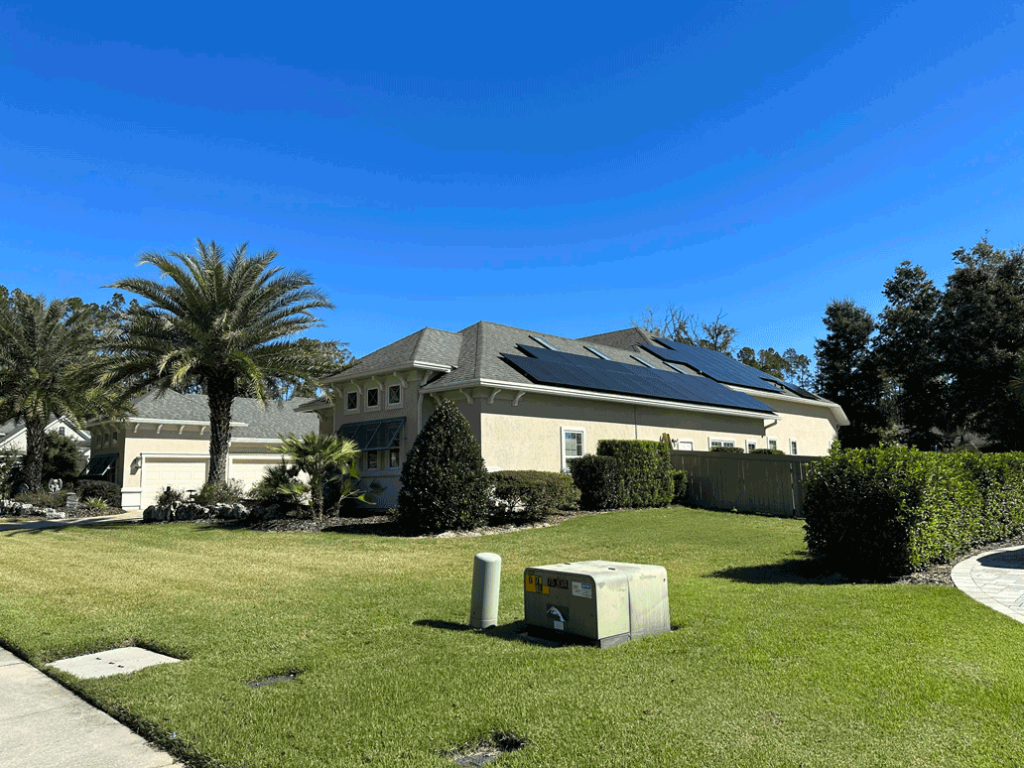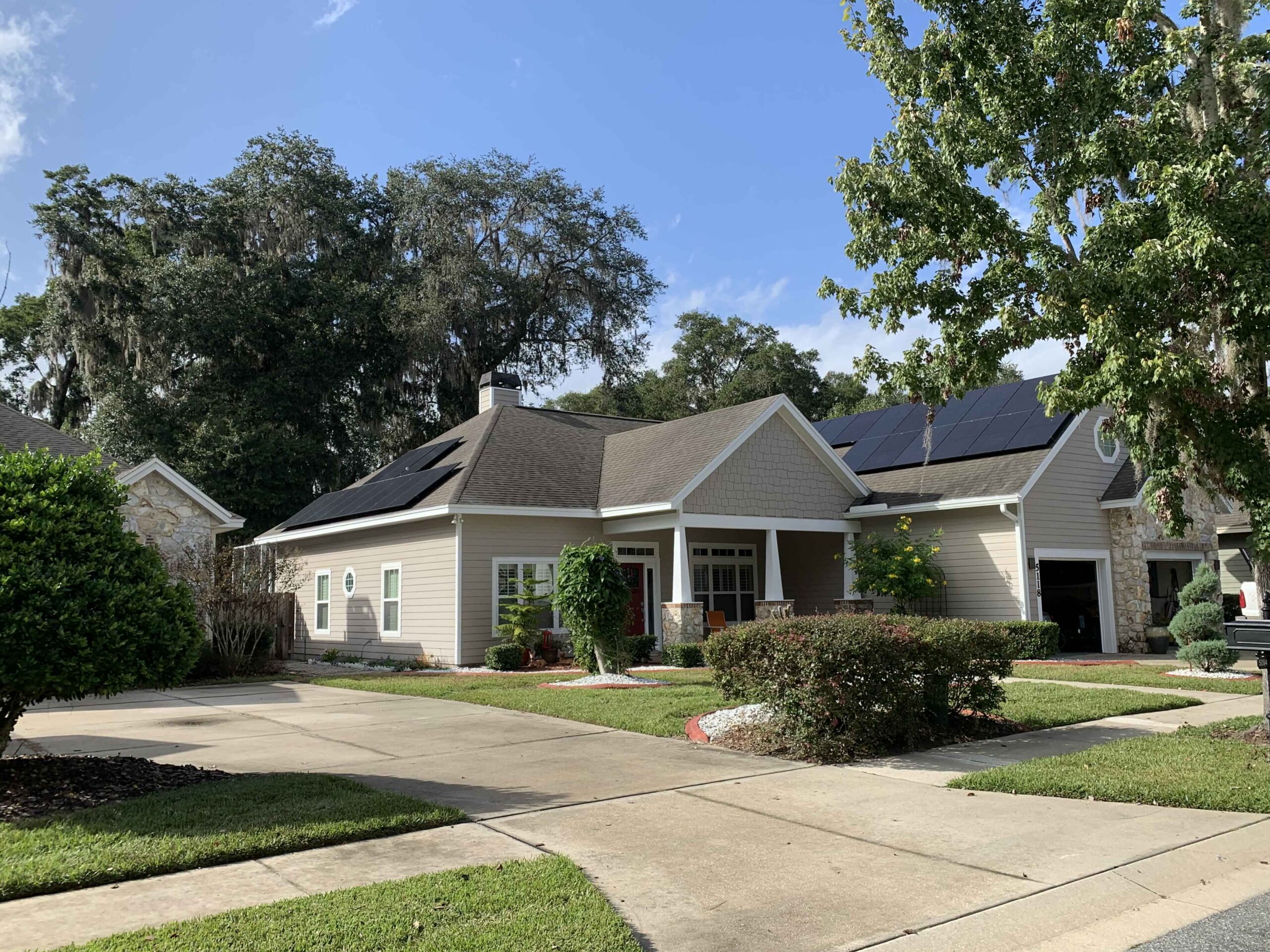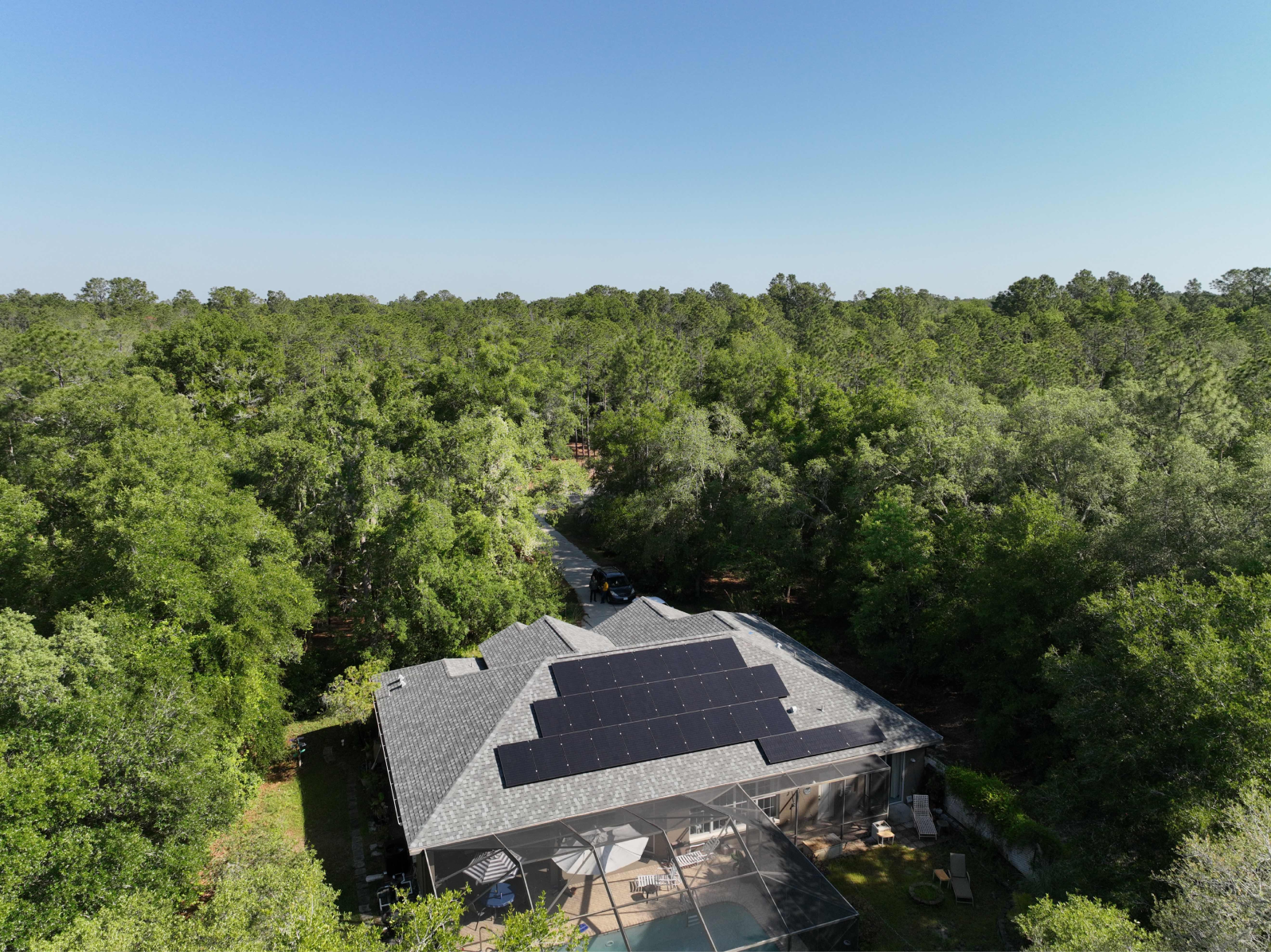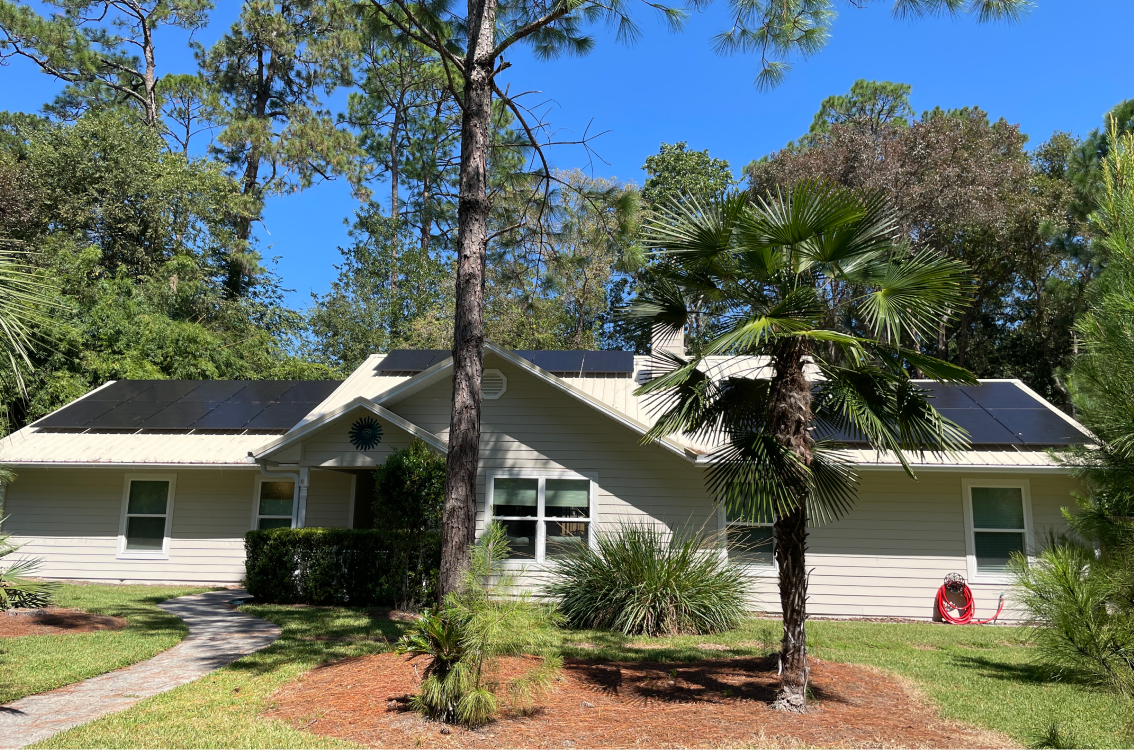Solar panels can help you save money on your long-term electricity costs, but unfortunately, like all home improvements, renewable energy systems come at an upfront price to purchase.
Thankfully, many solar power incentives in Florida can help you maximize your savings by minimizing your total investment costs. In addition to that, when financed, solar panels can actually generate positive cash flow and immediately reduce the cost of home ownership, unlike traditional home improvements.
If you are currently seeking ways to get the most value out of your solar panels, then you have arrived at the right place. Based in beautiful Gainesville, FL, PPM Solar has been serving the Sunshine State for nearly 15 years and has always stayed current on industry incentives and trends to help our customers understand the true value of solar panels in Florida.
In this guide for 2023, we will break down the price of solar panels in Florida before illustrating all of the important incentives, credits, and tax exemptions you should know that can help make PV systems more affordable and accessible to local homeowners and businesses.
Solar Power in Florida
From saving money on electricity bills to offsetting carbon emissions and living off the grid in Florida, going solar can be a great financial and environmental decision for both home and business owners in the Sunshine State.
Ranking third in the country for total capacity (behind California and Texas), the Solar Energy Industries Association (SEIA) reported that there were enough solar panels installed in Florida to power approximately 1,157,337 homes in late 2022.
Looking back over the past ten years, residential and small-scale solar growth in Florida can largely be attributed to the existence of favorable net metering policies offered by the state’s largest electric utilities. With net metering, solar panel owners are compensated for the electricity they send to the power grid at retail rates.
Although proposed policies in 2022 contained significant setbacks to state net metering programs, the threat was ultimately squashed when the bill was vetoed by Governor Ron DeSantis on April 27, 2022. Today, net metering programs remain in place so that solar energy can continue to be a wise investment for many home and business owners in Florida.

Florida Solar Panel Prices
Investing in a set of solar panels that will last for 25 years and more is not a “cheap” endeavor, and most photovoltaic (PV) installations cost tens of thousands of dollars to complete. In addition to the panels themselves, home solar upgrades incur many other project expenses, such as inverter systems, wiring, transportation, labor, overhead, and more.
Thankfully, the price of solar panels in Florida has dropped 52% in the last decade. While individual photovoltaic (PV) system prices depend on many unique installation factors, including power capacity, mounting materials used, and included components, on average, typical grid-tied solar panels can cost a total of anywhere from $8,000 to $30,000 out-of-pocket.
Investing in multiple decades of electricity costs, purchasing a home PV system is often made easier through solar financing or a loan with fixed monthly payments. By replacing offset utility electricity costs, both home and business owners can save money over time on their long-term energy expenses and should not be frightened by what appear to be “high-priced” solar panels.
If you want to:
👉 ensure you’re getting the best and latest technology,
👉 feel comforted, educated, and safe
👉 deal with a local company that is always available for all your future needs
PPM is the right choice for you, as we were for over 1,000 other Florida residents who chose our team to install their solar arrays.
Click the link below to schedule your FREE consultation with one of our solar specialists today!
GET MY FREE QUOTE IN ONE DAY
Federal Solar Investment Tax Credits
Of all the Florida incentives for solar power, no other program has had the same effect as the federal solar investment tax credit (ITC) program. Available nationally and recently extended for another full decade by the Inflation Reduction Act of 2022, the solar ITC can reduce your total PV project investment costs in Florida by 30% in the form of an income tax credit.
To illustrate an example, let’s say that your solar energy system costs $18,000 in total. If eligible, you could then claim a credit of up to $5,400 ($18,000*30%) against your federal income tax liability otherwise owed. In 2023, this 30% credit can be applied to nearly every aspect of your solar installation, including the costs of labor, installation overhead, and optional battery backup systems.
Florida Solar Rebates and Tax Credits
In 2023, there are, unfortunately, no statewide solar incentives in Florida that come in the form of rebates or tax credits. While some states have specific programs in place to help cover the costs of going solar for home and business owners, Florida’s net metering program and the federal ITC remain the strongest incentives for anyone to consider purchasing a PV system today. There are, however, Net Metering requirements on a state level, mandating the Investor-Owned Utilities (IOU’s) to provide a 1/1 Net Metering for their ratepayers.
Whether you are seeking a residential or commercial solar installation in Florida, we recommend conducting your own research to see if there are any new rebates or programs offered by your local city, county, or utility. In some cases, going solar can qualify homeowners for adjacent rebates or tax credits for energy efficiency or storage systems, with programs historically available in both Jacksonville and other areas.

Florida Solar Property Tax Exemption
Last but not least, a 100% property tax exemption is a great Florida solar incentive program designed to reward property owners for their green energy investment.
Solar energy systems have been proven to increase property value in the United States, and Florida is no exception. However, with the property tax exemption, when the time comes for your home to be assessed for tax purposes, the value-add of your solar energy system will not be taken into account.
So although property taxes in Florida are relatively low compared to other states, it is still great to know that there is a policy in place preventing unexpected increases to your annual tax payments after going solar. Upfront, all solar energy equipment is also exempt from FL sales tax, saving homeowners money on both photovoltaic (PV) and thermal heating systems.
This simply means that homeowners have a unique opportunity to increase their property value without increasing their property tax, another unique feature for solar energy home improvements.
Consider PPM Solar as Your Florida Solar Company
Serving Gainesville, Orlando, Jacksonville, Tampa, and beyond, PPM Solar is Florida’s premier solar power company for homeowners and businesses going green in the Sunshine State.
When you work with the local experts at PPM, we always take the time to help you discover, understand, and take advantage of any Florida solar incentives for which you may be eligible. Our services are always personalized to meet your specific project goals, and our team strives for nothing short of creating the best possible customer experience.
FAQ About Solar Panel Pricing And Incentives In Florida
What is the average cost of solar panels in Florida?
The average cost of solar panels in Florida varies depending on system size, location, and other factors. Generally speaking, you can expect to pay between $3 and $4 per watt for a photovoltaic (PV) system, including all overhead installation costs. With this, a typical 8 kW PV system would then cost between $18,000 and $24,000 before any FL solar incentives were applied. This translates to roughly $130 – $160/ month in solar payments, based on financing and qualification.
Are there incentives or tax credits available for installing solar panels in Florida?
Yes! Numerous incentives are available for home and business owners installing solar panels in Florida. Most notably, the Federal Investment Tax Credit (ITC) offered by the IRS applies to all 50 states with an income tax credit equal to 30% of the total cost of your PV installation. Additionally, some of the state’s utility companies offer net metering programs that compensate you for the solar energy generated by your PV system, which is also eligible for property and sales tax exemptions.
What kind of maintenance do I need to do on my solar panel system?
Maintaining your solar panel system is relatively easy and low-cost – just make sure you have regular inspections from a qualified professional every couple of years and keep the area around your PV array free from debris like leaves or branches so that it can collect maximum sunlight exposure. You should also clean the modules occasionally with a gentle soap-and-water solution if dirt or dust accumulates on them over time.
How long will my solar panel system last?
Most residential PV systems have an expected lifespan of 25 to 30 years. By working with a professional solar installer such as PPM Solar, you can access premium production warranties that can cover multiple decades of power generation. Even after 25 or 30 years, most solar panels will continue to produce emission-free electricity at slowly declining efficiency rates over time.
Will My Home Insurance Premiums Increase If I Install Solar Panels?
In most cases, the premium increase is very small and does not break the economics of the solar investment. However, you should check with your insurance provider to confirm that they provide coverage for solar energy systems before you install them in your home. Most major insurers do offer coverage for solar panels in Florida if they are properly installed according to industry standards. In addition, warranties are offered by solar installers.
Are There Any Special Requirements or Permits Needed to Install Solar Panels In Florida?
Yes. Prior to the installation of a residential photovoltaic system in Florida, you must obtain approval from your local building department or county permitting office (known as the authority having jurisdiction or AHJ), as well as the electric utility. Once the system is installed, both the AHJ and the utility must also approve the construction before the panels can be interconnected to the energy grid.



